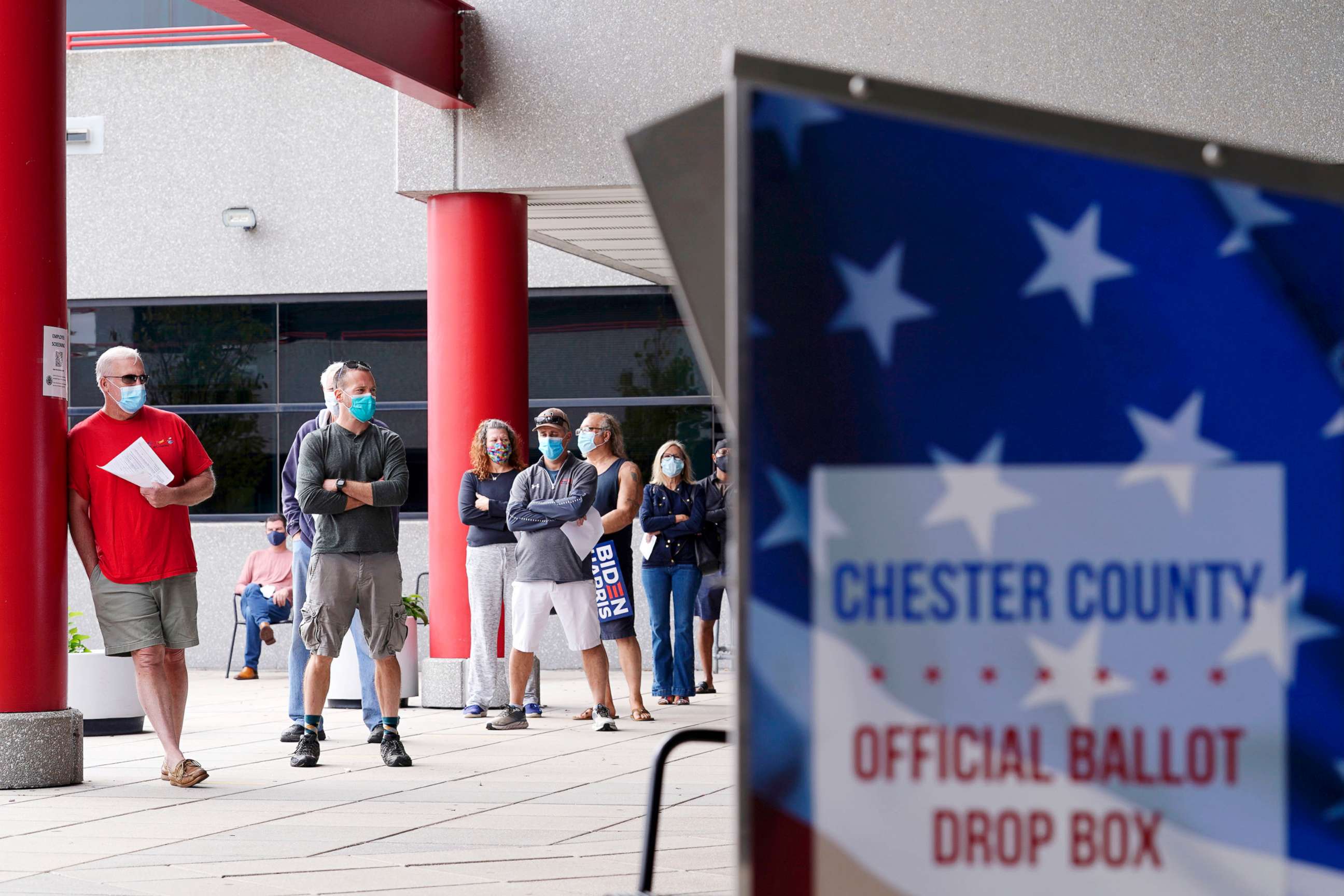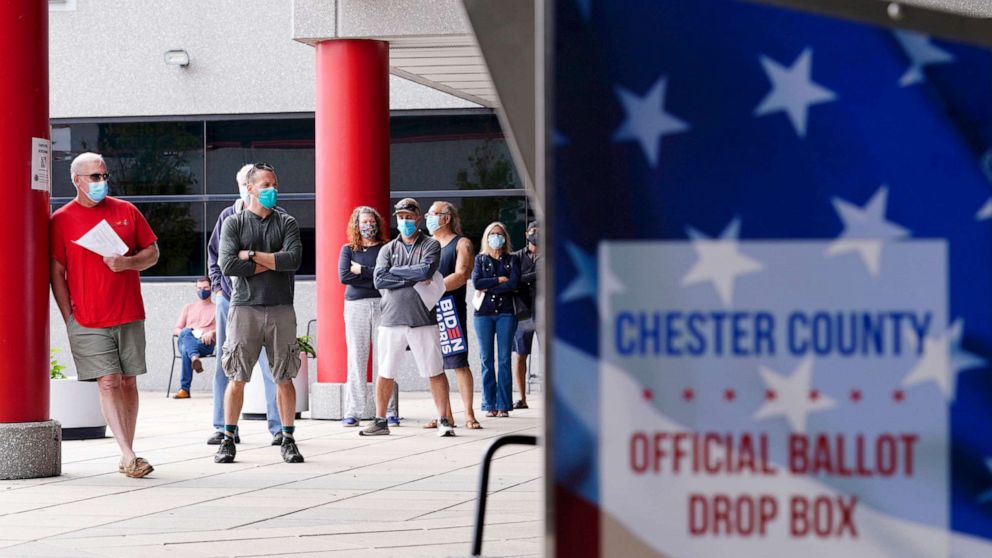After tight 2016 race, Pennsylvania poised to be linchpin to election win
With just over a week remaining until Election Day, both the Democratic and Republican presidential campaigns are once again honing in on the perennial battleground state of Pennsylvania as the potential linchpin to the White House.
President Donald Trump narrowly won the Keystone State in 2016 by 44,000 votes, less than 1% of the total ballots cast across the commonwealth. That tight margin, combined with its status as Democratic nominee Joe Biden's home state, has many on the left optimistic that it and its 20 electoral votes can be flipped this cycle.
ABC's "This Week" traveled to Pennsylvania in the campaign's homestretch as part of its "Six for the Win" series, to learn about voters' priorities in one of the most economically and geographically diverse regions of the country and to discover whether Biden's campaign has been successful in its effort to steal back support from Trump.
Tanya Siletsky, 60, who lives in the Philadelphia suburbs, voted for Trump in 2016 and said she still supports all of the his policies "100 percent." Nothing the president has said or done over the last four years has given her pause, she noted.
"Things that he brings up are exactly what me and my friends talk about in our kitchen, where we're sitting around having drinks and talking about politics and government," Siletsky told "This Week" co-anchor Martha Raddatz. "He's exactly spot on."
But there are plenty of voters expressing buyer's remorse. Morgan and Katie Harris, who also cast ballots for Trump four years ago, told Raddatz that they changed their minds about the president.
"It's the noise of everything," Morgan Harris said. "I kind of feel like my voice some days is lost in just the noise and the polarization."
"I'm just hoping that that Joe can maybe tone the noise down, if nothing else, and maybe just at least bring some professionalism back, some calm," he added. "Don't tweet. Just the basics."
This past week, both Biden and Trump made campaign stops in Pennsylvania. On Saturday, the former vice president spoke to drive-in rallies in Bucks and Luzerne Counties in the state's eastern half, while Trump held an event in Erie on Tuesday. The Biden campaign also deployed its most prominent surrogate, former President Barack Obama, for events in Philadelphia Wednesday.
"The degree of incompetence and misinformation -- the number of people who might not have died had we just done the basics," Obama lamented during a roundtable in the city Wednesday, criticizing Trump and the administration's reaction to the coronavirus. "The degree to which it has impacted low income communities so disproportionately. That's something that I'm not just confident that it can be fixed."

Katie Harris pointed to those issue as well, plus race relations, as key factors in her decision this year.
"With George Floyd's death, with COVID -- he had many opportunities, again, to come together and say, 'Look, let's let's figure this out together. Let's be a unifier,'" she said. "And time and time again, he's given these opportunities to act presidential and he doesn't."
Retiree Judy Ortola also reported that the coronavirus pandemic turned her away from the president. Democrats are leaning into the administration's pandemic response in an effort to win over senior voters, particularly in the swing state of Florida, home to an abundance of retirees. Thus far, polling shows that the message is working.
"When the virus initially hit neighbors, friends here in my community, we made over a thousand masks for the hospitals, nursing homes, friends, and it was a lot of work," Ortola told Raddatz. "And then (Trump) had the disrespect to not even wear a mask."
Ortola added that she's unsure, however, that others in her community have changed their minds about the president, something that bothers her.
"I don't know how you can support him anymore," she said. "You just don't treat people the way he treats people."
Voter Miguel Rivera, a Puerto Rico native who has lived in Pennsylvania for 25 years, shared that he doesn't like what he's heard from Biden and explained that his and others' votes weren't necessarily related to traditional party affiliations.
"There's a lot of people in Florida, in Philadelphia, voting for the Republican Party," he said. "That doesn't mean necessarily that they are Republican, but that the candidate that is there is the one that promises a brighter future for them, that's all."
Adding that Trump "did a lot" for Black and Latino Americans, Rivera said he will cast his second consecutive vote for Trump this year. It's a key ballot for the president, whose struggles with voters of color Republicans may need to overcome in order to prevent a blue wave from crashing come November.




